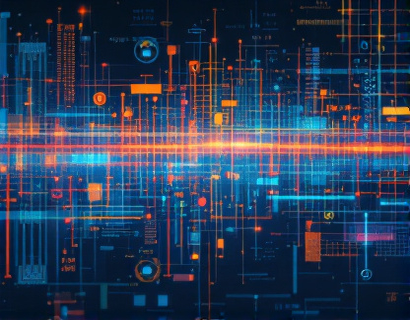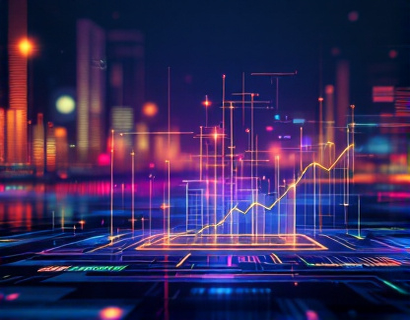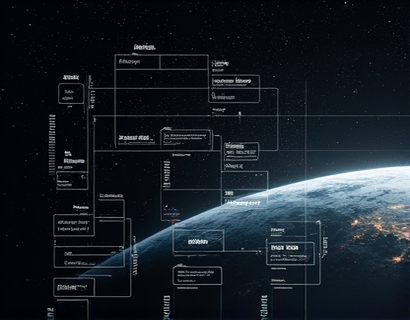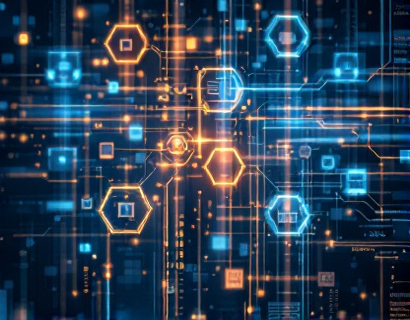Decentralized DAO Management: Revolutionizing Governance with Advanced Analytics and Collaboration Tools
In the rapidly evolving landscape of decentralized finance and autonomous organizations, the management of Decentralized Autonomous Organizations (DAOs) has become a critical area of focus. Traditional governance models are being transformed by innovative software solutions that leverage advanced analytics and collaboration tools. This shift aims to enhance transparency, efficiency, and decision-making within DAOs, enabling them to achieve sustainable growth and maximize their potential in the decentralized ecosystem.
Understanding DAO Governance
Before delving into the advancements in DAO management, it's essential to understand the core concept of DAO governance. A DAO is a digital entity governed by smart contracts on a blockchain, allowing for decentralized decision-making. Governance in a DAO involves proposing, discussing, and voting on changes to the organization's protocols and policies. This process is typically open to all token holders, ensuring a democratic and transparent approach to management.
The Need for Advanced Governance Tools
As DAOs grow in complexity and scale, traditional governance methods face significant challenges. Managing a large number of proposals, tracking voter behavior, and ensuring transparency in transactions become increasingly difficult. This is where advanced governance tools come into play, offering solutions to streamline these processes and provide deeper insights into the organization's operations.
Streamlining Governance with Advanced Software
Advanced software solutions for DAO management integrate a suite of tools designed to simplify and enhance the governance process. These tools automate routine tasks, provide real-time analytics, and facilitate better collaboration among members. By leveraging these technologies, DAOs can overcome the limitations of manual management and create a more efficient, transparent, and responsive governance structure.
Automation of Routine Tasks
One of the primary benefits of advanced governance software is the automation of routine tasks. This includes the management of proposals, voting processes, and transaction records. Automation reduces the risk of human error and frees up time for administrators to focus on strategic decision-making. For instance, smart contracts can be programmed to automatically open and close proposal periods, count votes, and execute changes once the required thresholds are met.
Comprehensive Analytics and Reporting
Advanced analytics and reporting tools are crucial for informed decision-making in DAOs. These tools provide real-time data on various aspects of the organization, such as token distribution, voting patterns, and financial transactions. By analyzing this data, administrators can identify trends, assess the health of the DAO, and make data-driven decisions. For example, visualizations and dashboards can highlight areas of concern or opportunities for growth, enabling proactive management.
Enhanced Collaboration and Communication
Collaboration is a cornerstone of successful DAO governance. Advanced software platforms offer robust collaboration tools that facilitate communication and coordination among members. Features such as discussion forums, messaging systems, and file sharing enable seamless interaction, ensuring that all voices are heard and ideas are shared effectively. This enhanced collaboration not only improves the governance process but also fosters a sense of community and engagement among token holders.
Transformative Features of Advanced DAO Management Software
The integration of advanced analytics and collaboration tools in DAO management software transforms the way organizations operate. These features not only streamline governance but also drive sustainable growth by providing valuable insights and fostering a more inclusive decision-making process.
Data-Driven Decision Making
One of the most significant advantages of advanced governance software is its ability to provide data-driven insights. By leveraging machine learning and data analytics, these tools can process large volumes of information to identify patterns and trends. Administrators can use these insights to make informed decisions, optimize resource allocation, and strategize for long-term success. For instance, analyzing voter behavior can help in tailoring proposals to better align with the community's preferences, increasing the likelihood of successful adoption.
Improved Transparency and Trust
Transparency is a fundamental principle of decentralized governance. Advanced software solutions enhance transparency by providing clear and accessible records of all transactions and decisions. Blockchain-based ledgers ensure that every action is immutable and verifiable, building trust among token holders. Additionally, real-time reporting and dashboards allow members to monitor the organization's performance and progress, fostering a culture of accountability and trust.
Enhanced Security and Compliance
Security and compliance are critical concerns for any DAO. Advanced governance tools incorporate robust security measures to protect the organization from potential threats. Features such as multi-signature wallets, audit trails, and regular security audits ensure that the DAO's assets and data are safeguarded. Moreover, compliance with regulatory requirements is simplified through automated checks and reporting, reducing the risk of legal issues and enhancing the organization's reputation.
Case Studies and Real-World Applications
Several DAOs have successfully implemented advanced governance software, demonstrating the tangible benefits of these tools. These case studies highlight how advanced analytics and collaboration features have transformed governance, leading to more efficient operations and sustainable growth.
Case Study 1: Community-Driven Protocol
A prominent community-driven protocol leveraged an advanced governance platform to manage a complex set of updates and feature requests. The platform's automation features streamlined the proposal and voting process, reducing the time required to implement changes from several weeks to mere days. The integrated analytics tools provided insights into community engagement and voting patterns, enabling the team to refine their approach and increase participation. As a result, the protocol saw a significant boost in user adoption and community support.
Case Study 2: Decentralized Finance (DeFi) Platform
A DeFi platform utilized advanced governance software to enhance transparency and security. The platform's governance dashboard provided real-time updates on token distribution, transaction volumes, and smart contract executions. The collaboration tools facilitated seamless communication among developers, auditors, and token holders, ensuring that all stakeholders were aligned and informed. The enhanced transparency and security measures helped the platform attract more users and investors, contributing to its growth and success.
Challenges and Considerations
While advanced governance software offers numerous benefits, there are challenges and considerations that DAOs should be aware of when adopting these tools.
Learning Curve and Adoption
Implementing new software can present a learning curve for DAO members, especially those who are not tech-savvy. It's essential for organizations to provide comprehensive training and support to ensure smooth adoption. Clear documentation, tutorials, and dedicated support channels can help mitigate this challenge and foster a positive user experience.
Interoperability and Integration
Ensuring that the governance software integrates seamlessly with existing systems and protocols is crucial. DAOs should evaluate the compatibility of the software with their current infrastructure and third-party tools. Interoperability is key to creating a cohesive and efficient governance ecosystem.
Cost and Resource Allocation
Advanced governance software can be an investment, and DAOs need to consider the cost-benefit ratio. While the long-term benefits are significant, the initial setup and ongoing maintenance costs should be carefully evaluated. Organizations should allocate resources effectively to maximize the return on investment and ensure sustainable growth.
Future Trends in DAO Governance
The landscape of DAO governance is continually evolving, with new technologies and approaches emerging to address the needs of decentralized organizations. Staying ahead of these trends is essential for maintaining a competitive edge and ensuring long-term success.
Integration with Decentralized Applications (dApps)
The integration of governance software with decentralized applications (dApps) is a promising trend. dApps can leverage governance tools to enhance user engagement and participation, creating more interactive and responsive applications. This synergy can lead to more robust and user-centric decentralized ecosystems.
AI and Machine Learning Enhancements
The incorporation of artificial intelligence (AI) and machine learning (ML) into governance tools is set to revolutionize decision-making processes. AI can analyze vast amounts of data to predict outcomes, optimize strategies, and identify potential risks. ML algorithms can improve over time, providing increasingly accurate insights and recommendations, further enhancing the efficiency and effectiveness of DAO governance.
Conclusion
The future of DAO governance is bright, with advanced analytics and collaboration tools paving the way for more efficient, transparent, and inclusive decision-making processes. By embracing these innovations, DAOs can overcome traditional challenges, drive sustainable growth, and thrive in the decentralized ecosystem. As the technology continues to evolve, the potential for even more transformative solutions is immense, promising a new era of governance in the digital age.










































